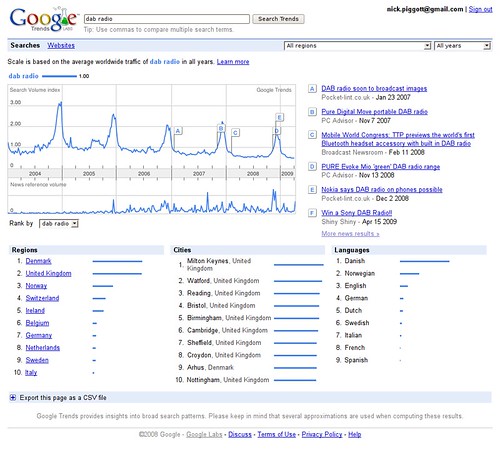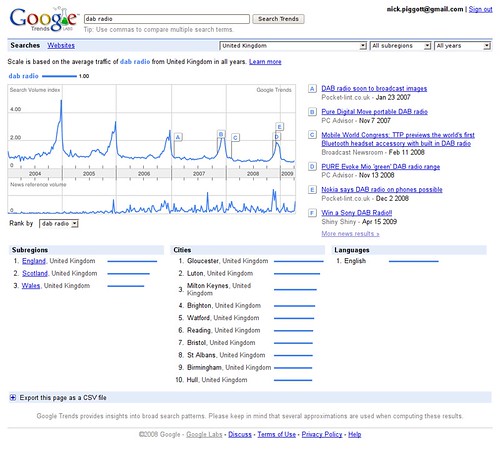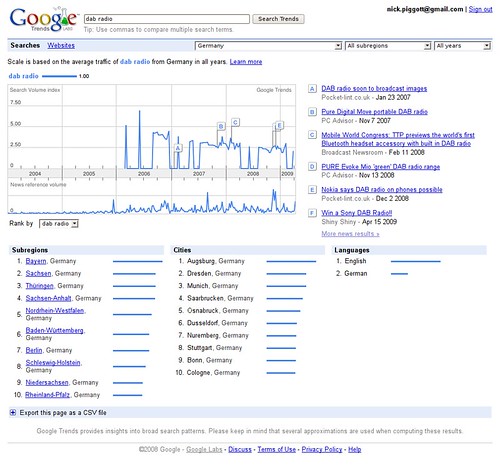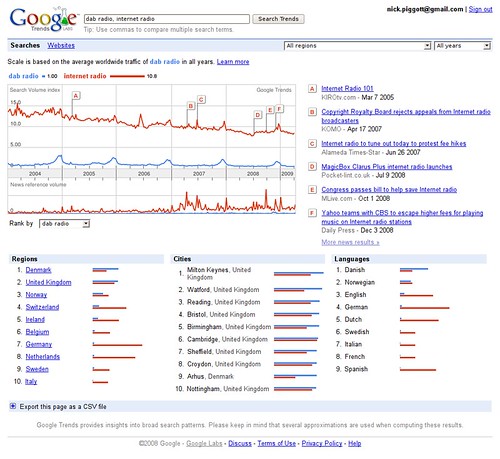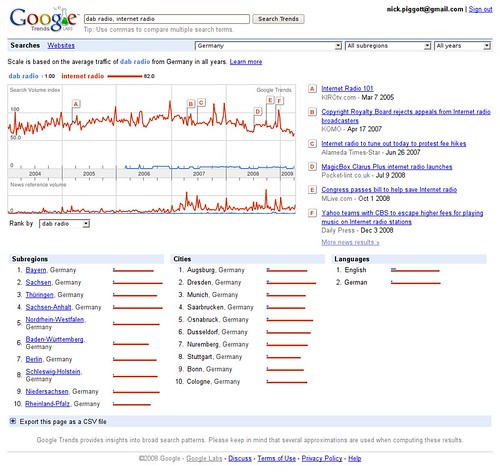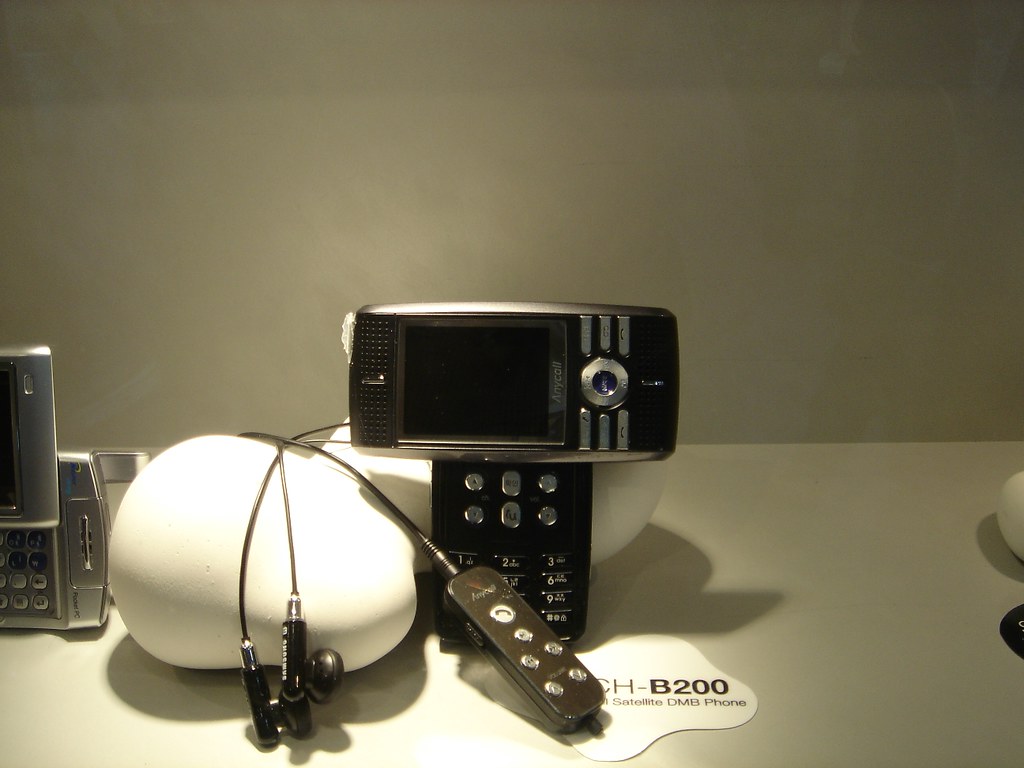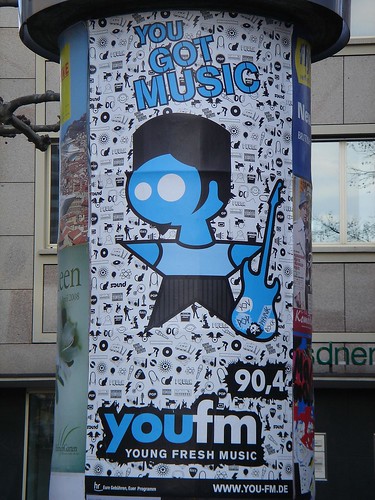Two unconnected but yet intertwined events have catalysed this posting. One was James Cridland writing, in The Future Of Radio – The Best Thing that:
The best thing that could happen to radio is that we stop talking about platforms, and start talking about content. Nobody, but nobody, cares about how they get content. Podcasts, online, downloads, on-demand, live, streaming, FM – they’re all just ways for our audience to get great content.
The second was the decision by German’s public service financing committee, the KEF (Die Kommission zur Ermittlung des Finanzbedarfs der Rundfunkanstalten), not to authorise increased expenditure by the public service broadcasters (the ARD) on DAB – the so-called “Re-launch” of DAB in Germany. They listed a number of factors in their decision, one of which was the failure of the largest commercial radio association, the VPRT (Verband der Privater Rundfunk und Telemedien – Association of Commercial Radio and Television) to embrace the relaunch plans. The KEF commented that it might be worth reassessing the technical options available for delivering digital radio, again.
So, I’m afraid that whilst I agree with James that content is fundamental, the platform question for radio remains very much open in some key countries. In the UK, we’re lucky enough that Digital Britain has coalesced aspirations into a concrete plan for the digitalisation of radio, despite the complaints of some people. (I wonder if there were people in pre-historic times who complained about “the wrong kind of fire”, and spent millennia grumbling that wheels weren’t sufficiently round enough). In Australia and France and Denmark, they’re getting on with the business of digitising radio with the best platform(s) to hand.
Why can’t we close this platform question down?
There is not, and never will be, a perfect answer to the question of which platform or platforms are ideal for radio. Radio varies from country to country and continent to continent, and even a century after its invention, the maturity of radio markets around the world varies enormously. It wasn’t a huge surprise to me to see the VPRT come out against change – market leading incumbents rarely want to do anything that disturbs foreseeable profits. In my opinion their projections of digital radio growth were unnecessarily pessimistic and didn’t take into account real-life experiences in the UK and Denmark. Commercial Radio in Germany is far less consolidated than in the UK or France, meaning that there are a great deal of stakeholders to influence and educate. In the absence of education, it’s hard for people to make an informed decision based on inputs from a number of sources.
It’s also the case that technology never provides answers, just more questions. As I’ve said before, it’s wrong to ask a clever technologist for a definite answer, because technology is so theoretically adaptable, there’s never a definitive answer. I’ve no doubt that the technical advisor to the KEF (just the one technical advisor, Prof. Dr. Ulrich Reimers, who is also Chair of the DVB Technical Module, and has been involved with the development of DVB-T2) can provide many technologies that theoretically solve the problem of “digitising radio”.
So it relies on broadcasters to seek input from technologists, amongst others, to decide what platform or platforms are right for their future, and then do something daring and step forward knowing that they might be wrong. (Although, if enough people do the wrong thing together, it rarely ends up being wrong, and often becomes an expenses policy – that’s a joke for the Brits).
How do you minimise the risks of being wrong?
I recommend doing some simple checks of technology solutions against a broader picture than just technology. Only once you move out of theory and into reality do you start to get some perspective of what could happen versus what’s likely to happen.
So here’s my short list of criteria:
- What’s the economic viablity for radio? How do the real costs compare against existing FM/AM transmission costs, for individual operators and for the whole industry? Can it scale to current consumption levels in a cost-effective way, or is it only designed to take a proportion of current listening? (Notice I say real costs, not necessarily the costs promoted by infrastructure providers. Do your own homework on how much equipment and infrastructure access costs; don’t rely on people trying to sell you something).
- How mobile and ubiquitous is it? Will it go everywhere that FM can go now? Can it go in cars, in your hand, in the kitchen, bathroom, office? Is it realistic to have battery powered receivers?
- How future proof is it? Is it flexible enough to adapt to unknown digital requirements in the future? (This is where I believe HD Radio has a real weakness. HD is “digitalisation lite”, and I believe the HD operators will want more bandwidth to deliver more compelling applications). How many other people are developing on the same platform for radio?
- How viable is it for consumers? When will they be able to buy receivers be made at all prices levels and complexities, starting at €10 for a simple “transistor” radio? What’s the potential market size, globally? Will consumer electronic manufacturers see a coherent, unified set of service providers, asking for broadly similar requirements?
Terrestrial internet works for some of these points, but fails on ubiquity and mobility. Mobile internet (3G, WiMax, whatever) ticks some of these boxes more convincingly than others, but seems to fail on the objective of a universally available low-cost entry receiver. The Internet will be part of radio’s distribution, but not the whole. None of these criteria has a yes/no answer, and each response will vary from territory and technology.
I’ll leave it up to you to decide if these criteria are relevant, and to test your favourite digital radio technology against them. I’d be interested to see what you think in the comments.
In the meantime, the platform question remains seemingly not just open, but open-ended, at least in the minds of the radio companies who need to make decisions on their futures.
Inevitable reiteration of the usual disclaimer – these are my personal views, and not those of my employer.

